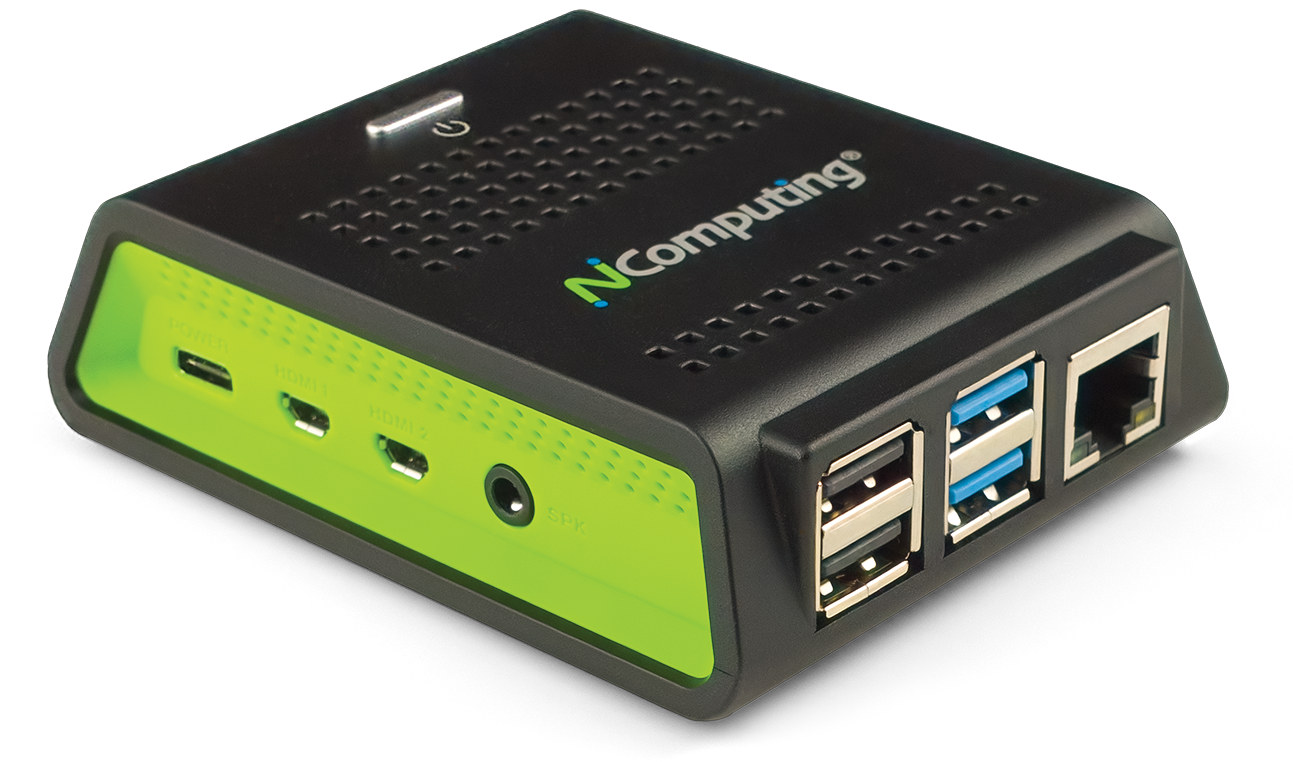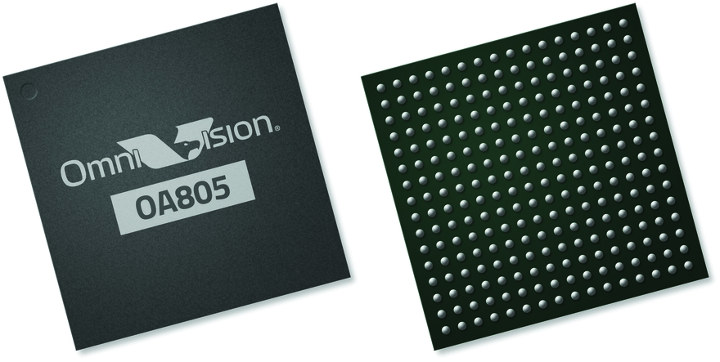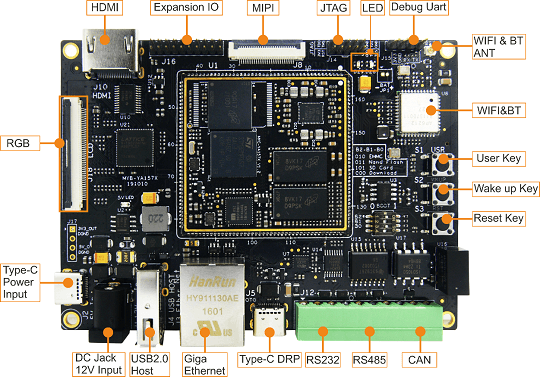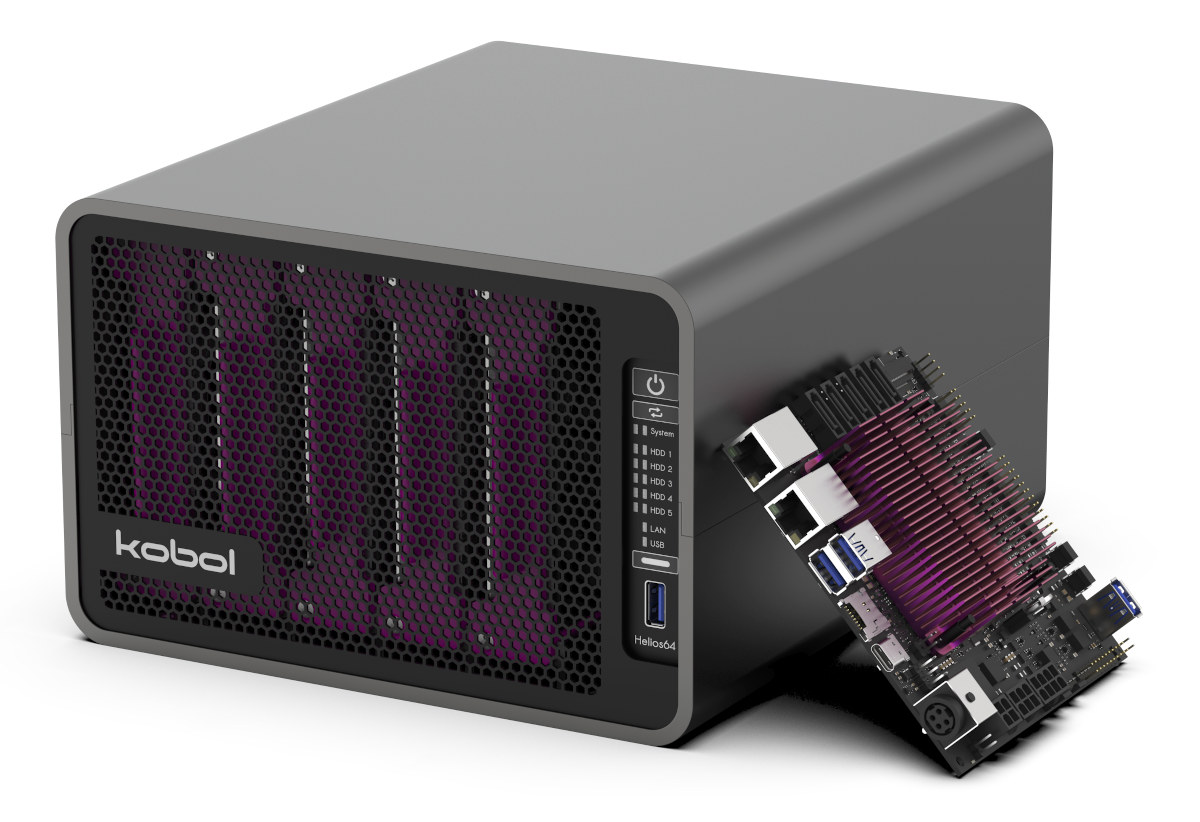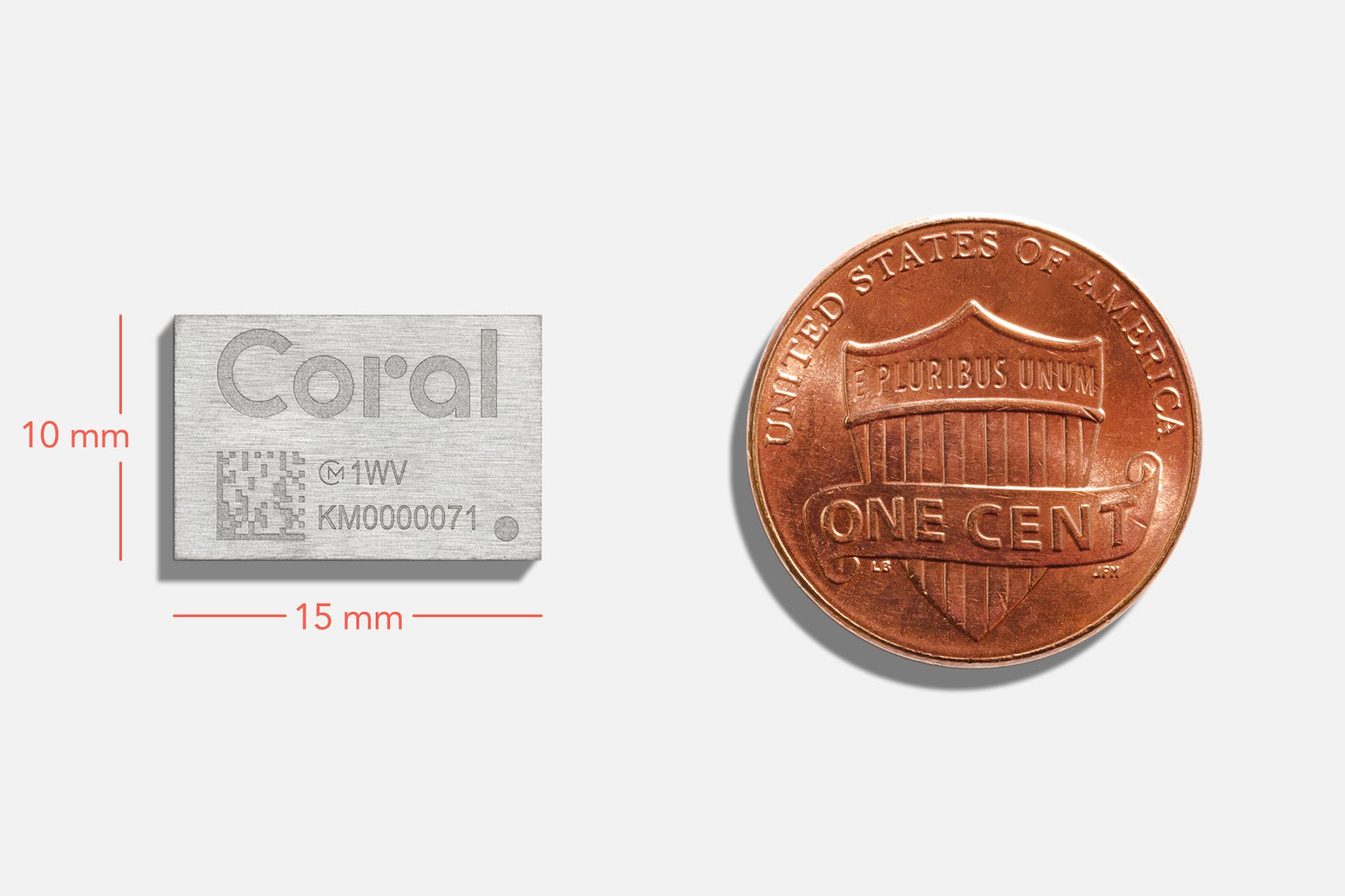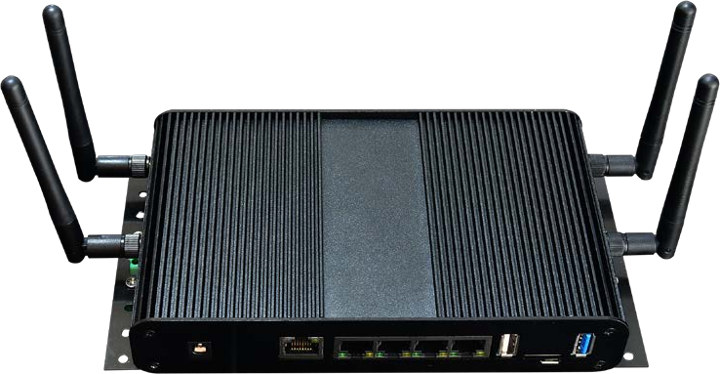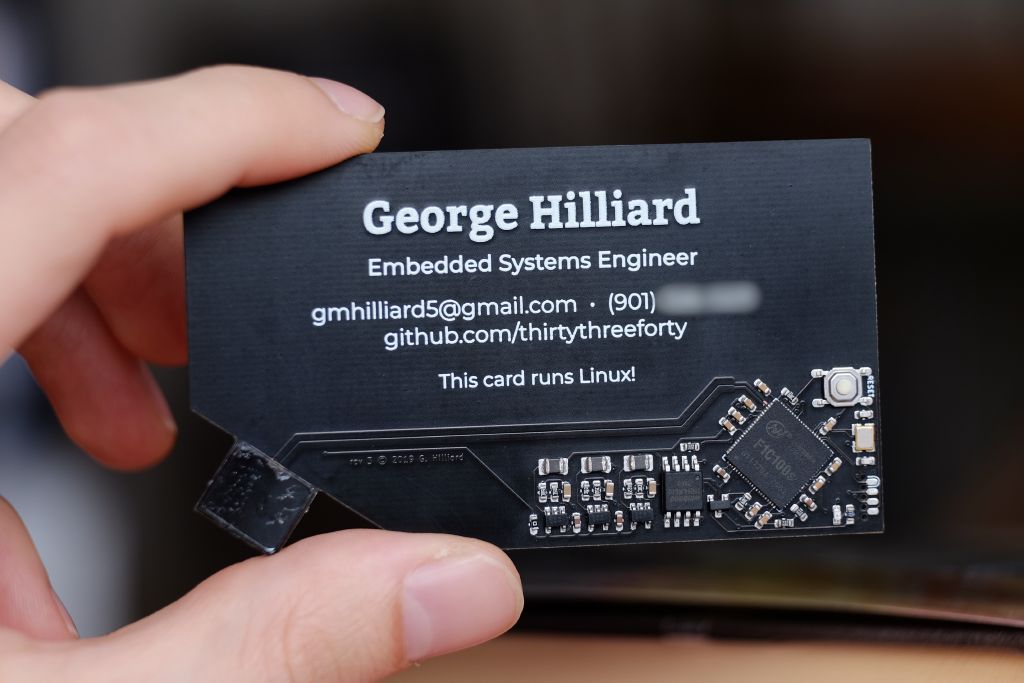NComputing RX300 Raspberry Pi 3 thin client was launched in 2017 with support for the company’ vSpace Pro desktop virtualization solution for Linux and Windows, and I tested it accessing a Windows Server 2006 host located in Singapore, and performance was pretty good for a remote system as I could play 1080p YouTube videos, browse multiple tabs in Chrome, etc.. relatively smoothly. This type of solution is aimed at businesses, for which it may be easier and cheaper to handle a fleet of devices using thin clients and servers, instead of traditional PC’s. Beside its vSpace Pro RX300 thin client, NComputing also introduced another Raspberry Pi 3 thin client that same year with RX-HDX using a design similar to RX300 but instead integrating support for Citrix HDX virtualization technology. NComputing now unveiled an update for the latter with RX420(HDX) thin client based on Raspberry Pi 4 SBC with 2GB RAM. […]
OmniVision OA805 4K Video Camera SoC Supports 100 ms Boot Time, 4K HEVC Encoding
OmniVision OA805 Arm Cortex-A5 4K video camera processor is specifically designed for battery operated security and surveillance cameras, including video doorbells, with the ability to encode 4K30p video streams with HEVC/H.265 video codec at very low power consumption. The processor also has a very short boot-up time of just 100ms, meaning it can go from completely powered off to fully functional upon trigger by a motion detection sensor. That short boot time removes the need for standby or sleep mode further lowering the power consumption and allowing the camera to have up to two years of battery life (albeit no mention of battery capacity was made…). OmniVision OA805 specifications: CPU Main CPU – Arm Cortex-A5 processor with NEON, 32KB I-cache, 32KB D-cache Secondary CPU (SPU) – Arm Cortex-A5 processor with NEON, 32KB I-cache, 32KB D-cache Media Processing Unit (MPU) – 32-bit RISC MCU with 8KB I-cache, 8KB D-cache System Memory […]
MYIR Launches SoM & Development Board based on STM32MP1 Microprocessor
MYIR, the Chinese based company that has developed several ARM-based hardware solutions, has introduced a new SoM powered by the ST’s STM32MP1 microprocessor called the MYC-YA157C CPU Module with an accompanying development board known as the MYD-YA157C development board. Early last year, STMicro announced the introduction of the STM32MP1, the first STM32 MPU (Microprocessor Unit) that features one or two Arm Cortex-A7 cores running Linux, as well as an Arm Cortex-M4 real-time core making it possible to use previous STM32 codes on the new unit. Although, less than 1-year-old, the STM32MP1 microprocessor has since be deployed on a couple of development boards like the STMicro’s own discovery kits and evaluation platform, Emtrion emSBC-Argon, PanGu single-board computer, and even octavo systems unveiled the OSD32MP15x system-in-package. One primary observation with these other developments boards is their relatively steep cost, and something MYIR aims to address. MYiR MYC-YA157C STM32MP1 CPU Module The MYC-YA157C […]
Kobol Helios64 RK3399K SBC & 5-Bay NAS Pre-Orders to Start Next Week
We covered Rockchip RK3399K processor a few months ago, as a version of RK3399 processor qualified to run at 2.0 GHz, or supporting a wider-temperature range (-20 to +85°C) at 1.8 GHz. We found out about the new processor, as Kobol was working on a Helios64 SBC designed for NAS that featured RK3399K SoC. At the time, we just had a drawing of the board and some specifications, but now the company has announced pre-orders for the board and a complete 5-bay NAS kit will start next week and the actual shipping start in March. Kobol Helios64 SBC Specifications: SoC – Rockchip RK3399K hexa-core processor with 2x Arm Cortex-A72 cores @ 2.0 GHz, 4x Cortex-A53 cores @ 1.6 GHz System Memory – 4GB LPDDR4 Storage – 16GB eMMC 5.1 flash, 5x SATA 3.0, 1x M.2 SATA slot shared with one SATA 3.0 port, MicroSD port Connectivity – 1x 2.5GbE port, […]
Google Coral mPCIe and M.2 Cards for Sale, New Coral Dev Board Mini and Modules Coming in 2020
Google introduced Coral development board and USB accelerator with Google Edge TPU last year. The development board was comprised of a baseboard and Coral system-on-module with an NXP i.MX 8M quad-core Arm Cortex-A53 processor and the Edge TPU. Since then ASUS announced Tinker Edge T and CR1S-CM-A SBC based on the Coral module, and yesterday, I noticed Seeed Studio started selling mPCIe and M.2 AI accelerator card with Google Edge TPU, while today, Google announced upcoming Coral products for 2020. Coral Mini PCIe and M.2 Accelerators Coral Mini PCIe card specifications: Half-mini PCIe card with PCIe Gen2 x1 Supply voltage – 3.3VDC +/- 10 % Dimensions – 30.00 x 26.80 x 2.55 mm Weight – 3.6 g Temperature Range – Storage: -40 ~ 85°C; operating: -20 ~ 70°C Relative humidity – 0 ~ 100% (non-condensing) Op-shock – 100 G, 11ms (persistent); 1000 G, 0.5 ms (stress); 1000 G, 1.0 ms […]
ESPRESSOBin ULTRA Gateway Features 5 Gigabit Ethernet Ports, WiFi 5, Supports 4G LTE Cellular Connectivity
Marvell ESPRESSOBin networking board launched in 2016 for as little as $39 with an Armada 3700LP (88F3720) dual-core Arm Cortex A53 processor, up to 1GB RAM, three Gigabit Ethernet ports, SATA, and a mPCIe slot for wireless connectivity. Globalscale Technologies is now back with ESPRESSOBin ULTRA with a similar base but more features, a metal enclosure, and a much higher price point. ESPRESSOBin ULTRA specifications: SoC – Marvell Armada 3720 dual-core Arm A53 processor clocked up to 1.2 GHz with packet accelerator System Memory – 1GB DDR4 (option up to 2GB) Storage – 8GB eMMC flash, 4Mbit SPI NOR flash, 1x M.2 2280 slot for SATA SSD Connectivity Switch – Marvell Topaz 6341 (88E6341) Networking Switch 1x GbE WAN with 30W POE 4x Gigabit Ethernet ports (LAN) 802.11ac Wi-Fi 5 2×2 MIMO module + Bluetooth 4.2 Optional 4G LTE cellular connectivity via mini PCIe and NanoSIM card slot USB – […]
$55 ODROID-GO Advance Linux based Retro Game Console is Powered by Rockchip RK3326 Processor
Last year, Hardkernel took some time away from Arm and x86 Linux SBCs with the launch of ODROID-GO retro game console powered by Espressif Systems ESP32 processor. The console could be programmed with the Arduino IDE, and the $32 price tag made it a popular item despite the limited processing power fo the ESP32 dual-core processor. The good news is that the console got an upgrade with ODROID-Go Advance equipped with a Rockchip RK3326 quad-core Cortex-A35 processor coupled with 1GB RAM to run Linux, and featuring an upgraded 3.5″ wide-viewing angle color display. ODROID-GO Advance specifications: SoC – Rockchip RK3326 quad-core Arm Cortex-A35 processor @ 1.3GHz with Mali-G31 MP2 GPU System Memory – 1GB DDR3L @ 786Mhz, 32 Bits bus width Storage – 16MB SPI Flash for bootloader, Micro SD Card slot (UHS-1 Capable interface) Display – 3.5″ 320×480 TFT LCD (Wide-viewing angle display, MIPI-DSI interface) Audio – 3.5mm earphone […]
This Business Card is a $3 Linux Computer Powered by Allwinner F1C100s SoC
The smallest, thinnest Linux computer There are many business card-sized SBCs, like RPi 4. But George Hillard, an embedded systems engineer decided it would be interesting to build an actual business card that was a computer. His card runs Linux and houses an Allwinner F1C100s carrying an ARM9 processor with 32MB RAM and 8MB flash storage. The Basics It holds some of his photos, a copy of his resume and a couple of games, which is pretty good for something like a business card. There is a USB port off one corner, and the unit can connect to a computer and boot up in about 6 seconds and shows up under USB as a flash drive. But that piggybacked computer-attached display is really the only type of display the card can manage. The Shell and Linux Version The shell has the games, including a version of 2048, and a small […]


